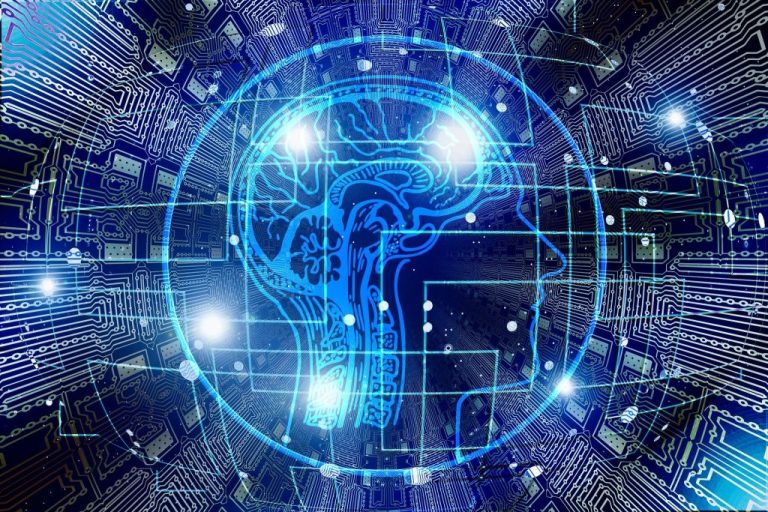Driving Innovation and Personalization: The Impact of AI and ML with Iurii Milovanov from SoftServe
Insights from SoftServe on AI and ML
Tags: big data, innovation, machine learning, softserve
Understanding SoftServe
SoftServe is a seasoned IT and professional services company with three decades of experience. We focus on leveraging cutting-edge technologies like artificial intelligence, big data, and blockchain to resolve genuine business challenges. Our dedication to understanding our clients’ needs—rather than solely concentrating on technology—sets us apart. While we are indeed technology specialists, our primary goal is to identify the best technological solutions that drive our clients toward their objectives.
Having originated in Ukraine, we have grown to establish offices in diverse regions, including the US, Latin America, Singapore, the Middle East, and across Europe. Our expertise spans various industries, including retail, financial services, healthcare, energy, oil and gas, and manufacturing. Additionally, we partner with digital natives and independent software vendors, assisting them in integrating advanced technologies into their offerings to enhance their service delivery.
Key Trends in AI and Machine Learning
A notable trend is the widespread acceptance of AI, machine learning, and data science as vital components of current technology. The question is no longer about whether these technologies belong to the future; they are already integral to many innovations we experience today. Their ability to tackle previously unsolvable issues—such as natural language processing, image recognition, and code generation—has reshaped understanding. Traditional programming methods struggle with these complexities, but by harnessing the vast data we collect, we can find viable solutions.
Advancements in data collection, cloud computing power, training efficiencies, and algorithm development have led us to achieve superhuman performance in tasks once thought exclusive to human capabilities. While human intelligence has its limits, machines can enhance our cognitive abilities, enabling us to tackle challenges that lie beyond our innate capabilities.
The overarching shift indicates that machine learning and AI are now essential for managing complex problems requiring knowledge, computation, perception, reasoning, and decision-making. This trend spans across multiple sectors, including healthcare, finance, and retail.
Emerging Focus: Generative AI
In my upcoming keynote at TechEx North America, I will delve into generative AI—a concept often misconceived as a recent innovation, primarily identified with platforms like ChatGPT. In reality, generative technologies have been evolving for some time, and we have been actively engaged with these advancements. The recent progress stems from extensive knowledge and experience, allowing us to apply generative AI solutions across diverse fields—ranging from efficient document summarization to enhanced user experiences and logical reasoning.
Nevertheless, challenges such as reliability and comprehending the full potential of these technologies remain and require further exploration.
The Role of AI and Machine Learning in Product Innovation
AI and machine learning equip us with the tools necessary to tackle problems that traditional methods cannot resolve, thereby significantly influencing product innovation.
Traditional technology serves as a foundation, but to truly innovate and maximize the benefits of technology, its application is essential. Leveraging tech is vital for product development, enhancing user experiences, and gleaning actionable insights from data. However, engaging with this technology can be complex, requiring expertise in model training, evaluation, and architecture selection. Unlike traditional software development, where project goals and requirements are often clear, machine learning and artificial intelligence are inherently experimental. In these areas, the behavior of systems is dictated by data rather than source code, which leads to uncertainties about data quality, predictive capabilities, and the sufficiency of data collected. Thus, experimentation becomes a prerequisite.
Over time, the industry has adapted to this uncertainty, moving away from the notion that machine learning can achieve predictability. Instead, organizations have learned to efficiently transform ideas into testable hypotheses, validating through experimentation and rapid prototyping, ultimately developing successful experiments into full products. This modern cycle of AI and ML product development necessitates a mindset focused on continual ideation and experimentation. It begins with selecting high-potential use cases, followed by brainstorming practical solutions, prototyping quickly, and identifying the most effective results. This approach requires a keen understanding of problems best suited for AI/ML and an agile methodology for validating and scaling those solutions.
Businesses can significantly enhance personalization through AI technologies. The concept of personalization itself can be challenging to define—what truly constitutes an individual’s identity? It encompasses preferences that can be stochastic or situational, making it a multifaceted issue. While traditional technology can approach this, it struggles to achieve the depth of personalization attainable through data-driven insights. AI/ML excels in deciphering personal signals and preferences, providing tailored experiences and targeted marketing. Essentially, these technologies serve as a conduit between user behavior and individual preferences, making them the most effective means of achieving personalization.
Another advantage of contemporary AI and ML is their capability to analyze varied data types. By integrating clickstream data from websites, social media text, and image data, businesses can extract the insights necessary for impactful decisions. This capacity to process diverse datasets offers a significant edge in delivering personalized experiences.
When it comes to the metaverse, machine learning impacts its development in two primary ways. Firstly, the metaverse can be seen as a digital counterpart to our physical world. While traditional engineering can play a role, the complexity of many processes, such as manufacturing production lines, poses challenges when attempting to create a precise digital twin. AI/ML can bridge the gap, helping to recreate these intricate systems in digital form.
The second facet of the metaverse is its limitlessness, where businesses can create wholly digital assets without real-world counterparts. To ensure these digital entities display intelligent behavior akin to their physical equivalents, AI and ML are crucial.
Leading companies like Facebook, Google, and Amazon exemplify the effective use of AI and machine learning, driving industry advancements through their AI-powered products. Over the past decade, the landscape has shifted from a focus on research into broader adoption, with almost every company now engaging in AI/ML initiatives, whether through internal development or usage of existing products. Although AI/ML integration varies across industries and business functions, it’s becoming increasingly rare to find organizations without AI/ML applications.
However, while many organizations are leveraging AI and machine learning, challenges persist. The primary hurdle lies not in achieving success with these technologies, but in ensuring efficiency. With the sheer volume of data available and the accessibility of numerous open-source and managed services, businesses must discern the best opportunities for implementation. Identifying high-impact use cases and transforming ideas into scalable, production-ready products is essential. The path to successful AI adoption involves recognizing the most promising use cases and efficiently navigating the complexities of rigorous experimentation and reliable software development.
Many organizations are brimming with innovative ideas but often struggle to evolve these concepts into dependable products. Simultaneously, there are numerous digitally adept companies filled with talented engineers who lack the essential expertise in AI and ML technologies. Their challenge lies in understanding how to apply this technology to solve real-world business challenges and identify accessible opportunities for implementation. They grapple with how to effectively utilize these advancements.
What does the future of AI and machine learning look like? I tend to adopt an optimistic view regarding the future, even though there are prevailing concerns about AI and ML that are quite understandable. Historically, similar anxieties arose with groundbreaking innovations, such as electricity. One valid concern is the potential for certain jobs to become obsolete due to these technologies. Yet, I believe this view is overly negative. History indicates that, regardless of the technology we embrace, human involvement remains crucial.
Currently, most technologies we use enhance our cognitive abilities rather than replace them. I foresee a future where AI is employed collaboratively. For instance, consider tools like GitHub Copilot, designed to assist developers in coding. We still require a human to steer AI toward achieving a specific goal or meeting user expectations.
Moreover, it is likely that this technology will be utilized across various applications where AI helps us rather than replaces us. I often reflect on an insightful quote: if you fear AI will supplant you or your job, you’re probably mistaken. It’s the individuals adept at using AI who may take your place. Consequently, acquiring skills to effectively utilize this technology will be vital for enhancing work efficiency and securing a competitive edge in the future.
Iurii Milovanov serves as the director of AI and data science at SoftServe, a consultancy and software development firm.
Are you interested in delving deeper into AI and big data with insights from industry leaders? Explore the AI & Big Data Expo held in Amsterdam, California, and London, co-located with Digital Transformation Week.
For more information about upcoming enterprise technology events and webinars powered by TechForge, visit our site.
The AI execution gap remains a significant challenge, with around 80% of projects failing to transition into production. This issue highlights the need for actionable strategies that can effectively bridge this gap.
Recent Developments
In recent news, educators in England have received approval to integrate AI technologies into their teaching practices, marking a new era in educational methodologies. Similarly, the impact of AI on the cryptocurrency space is becoming increasingly evident, reshaping various aspects of the industry.
Sam Altman, the CEO of OpenAI, stated that the era of superintelligence has just begun, a statement that showcases the rapid advancements in AI capabilities.
Insights and Analysis
The role of machine learning is pivotal in enhancing security measures within cloud-native containers. This advancement has garnered significant attention, drawing over 41,281 views, as organizations strive to bolster their cybersecurity frameworks.
Innovative applications of machine learning are transforming business operations across various sectors, illustrated by 14,314 views on industry-driven solutions. Furthermore, concerns are rising around the misuse of AI and bots for artificially inflating music streaming numbers, an issue that has captured 12,164 views for its implications on the music industry.
Moreover, the collaboration with outsourced developers is being recognized for its advantages, particularly in the AI and space sectors, with 10,391 views reflecting the growing interest in this strategy.
Trends to Watch
As AI continues to evolve, its integration into various applications will be a major trend to monitor. The intersection of AI with logistics, finance, and security stands to reshape these industries fundamentally.
AGI and Artificial Intelligence in Society
In the evolving landscape of Artificial Intelligence, a noteworthy statement has emerged: the era of superintelligence is upon us.
Another emerging player in the AI sector is Mistral AI, which is attempting to compete with larger tech firms by showcasing its innovative reasoning capabilities.
As discussions continue around the future of AI, it’s crucial to explore the implications and functionalities of the AI blockchain.
Subscribe to receive all our premium content and the latest updates in technology delivered straight to your inbox.
Categories
- Applications
- Companies
- Deep & Reinforcement Learning
- Enterprise
- Ethics & Society
- Industries
- Legislation & Government
- Machine Learning
- Privacy
- Research
- Robotics
- Security
- Surveillance
Services
Explore a wide range of services across various industries, including:
- Defense & Security
- E-Commerce
- Education
- Energy, Chemicals & Utilities
- Engineering & Research
- Environmental
- Financial & Insurance Services
- Government
- Healthcare
- IT Services
- Manufacturing
- Media & Entertainment
- Not for Profit
- Real Estate & Construction
- Retail
- Software & Cloud Services
- Technology
- Telecommunications
- Transportation, Shipping & Logistics
- Travel & Hospitality
- Wholesale
- Other
Country Selection
Please select your country from the list below:
Permissions
By entering your email, you acknowledge and accept our Terms and Privacy Notice.






